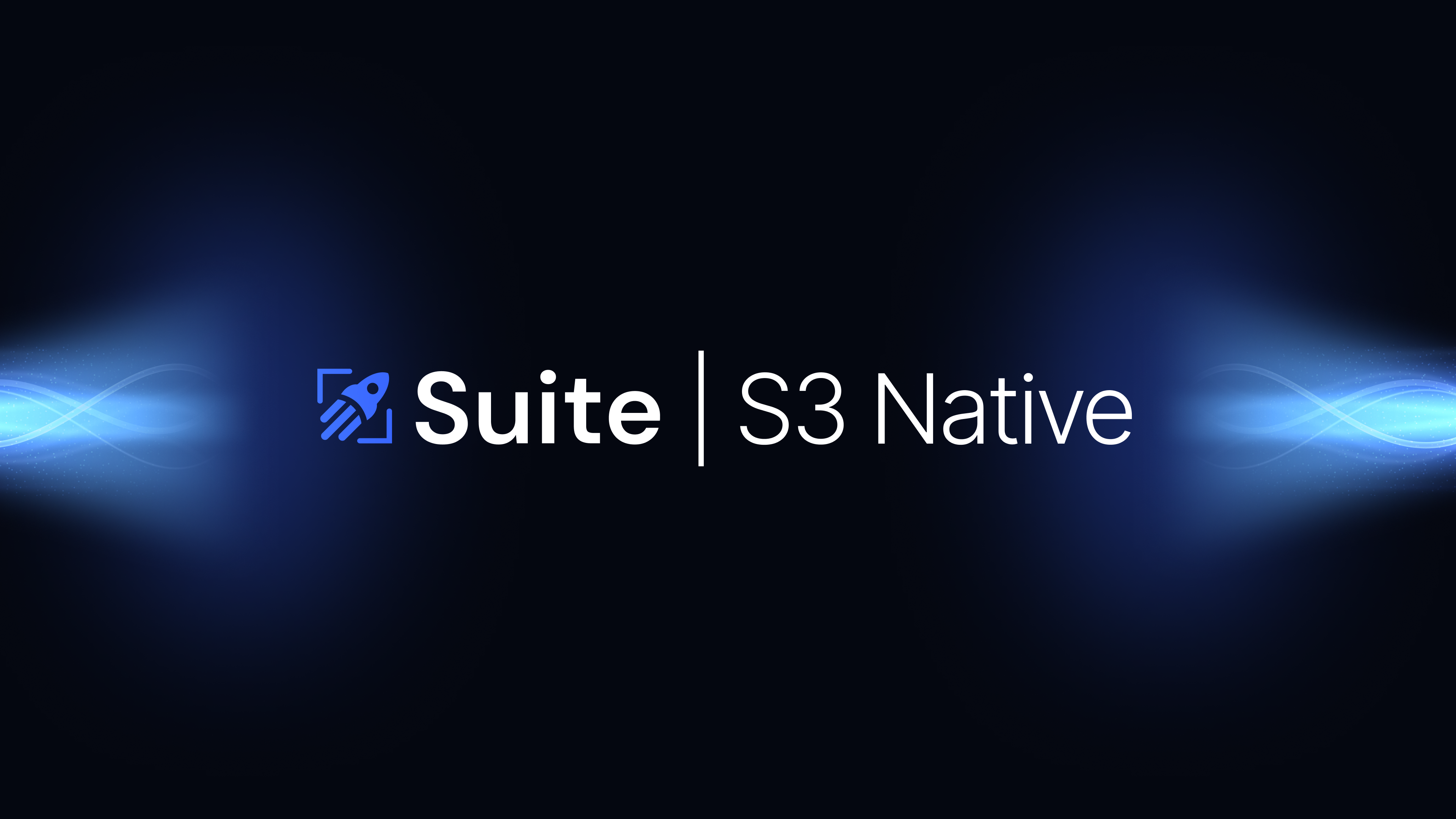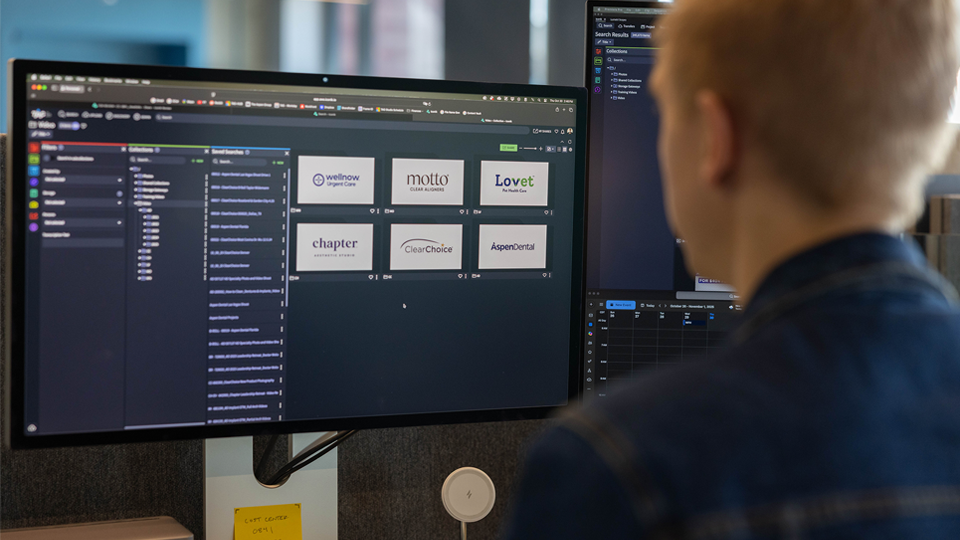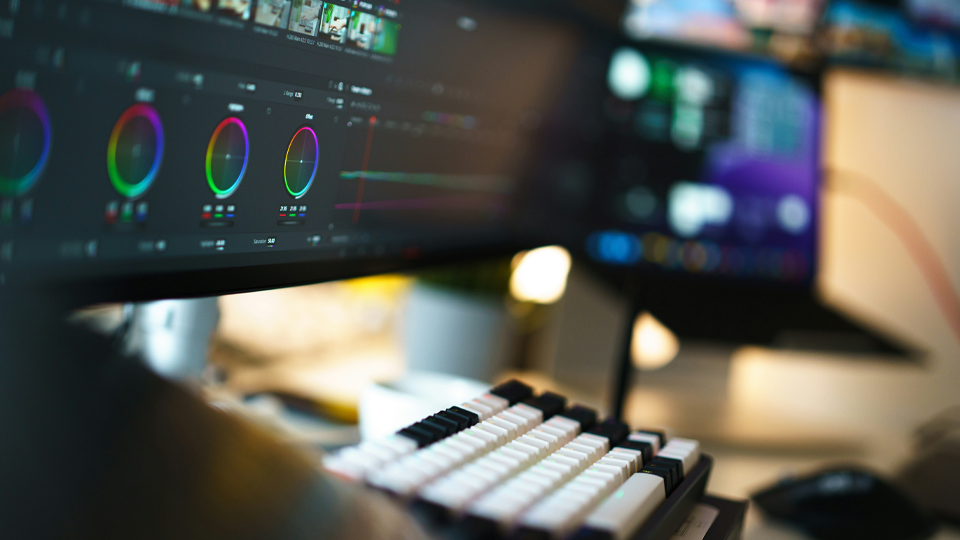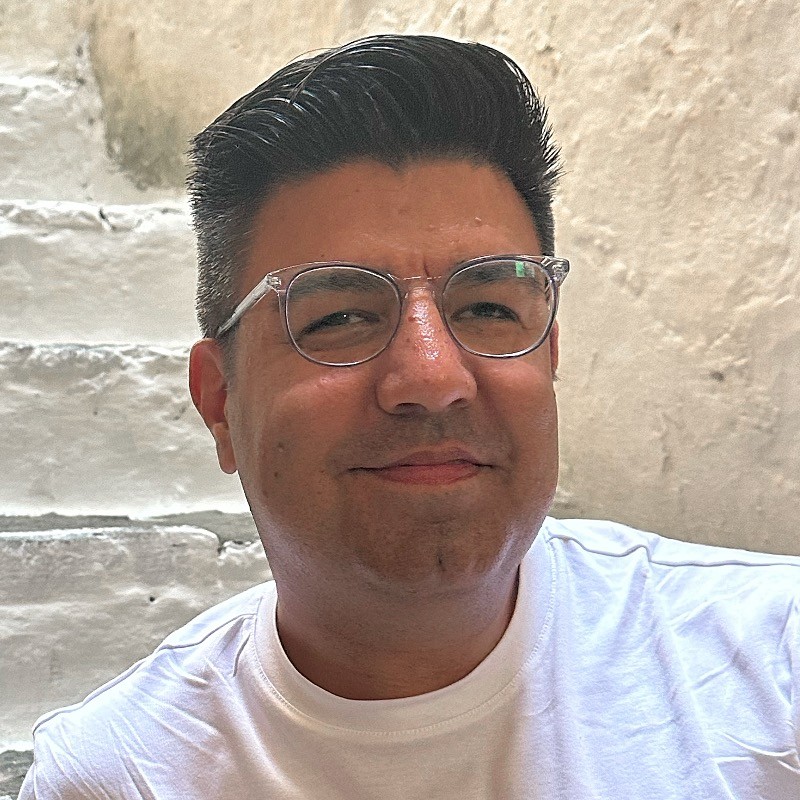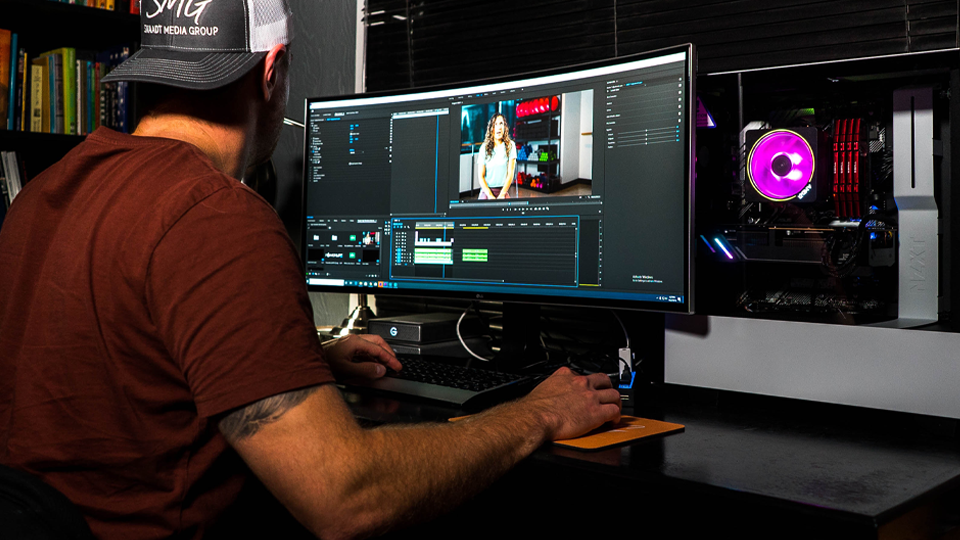Inside the studio: Award-winning video editor Jason Sedmak on navigating 25 years in post production
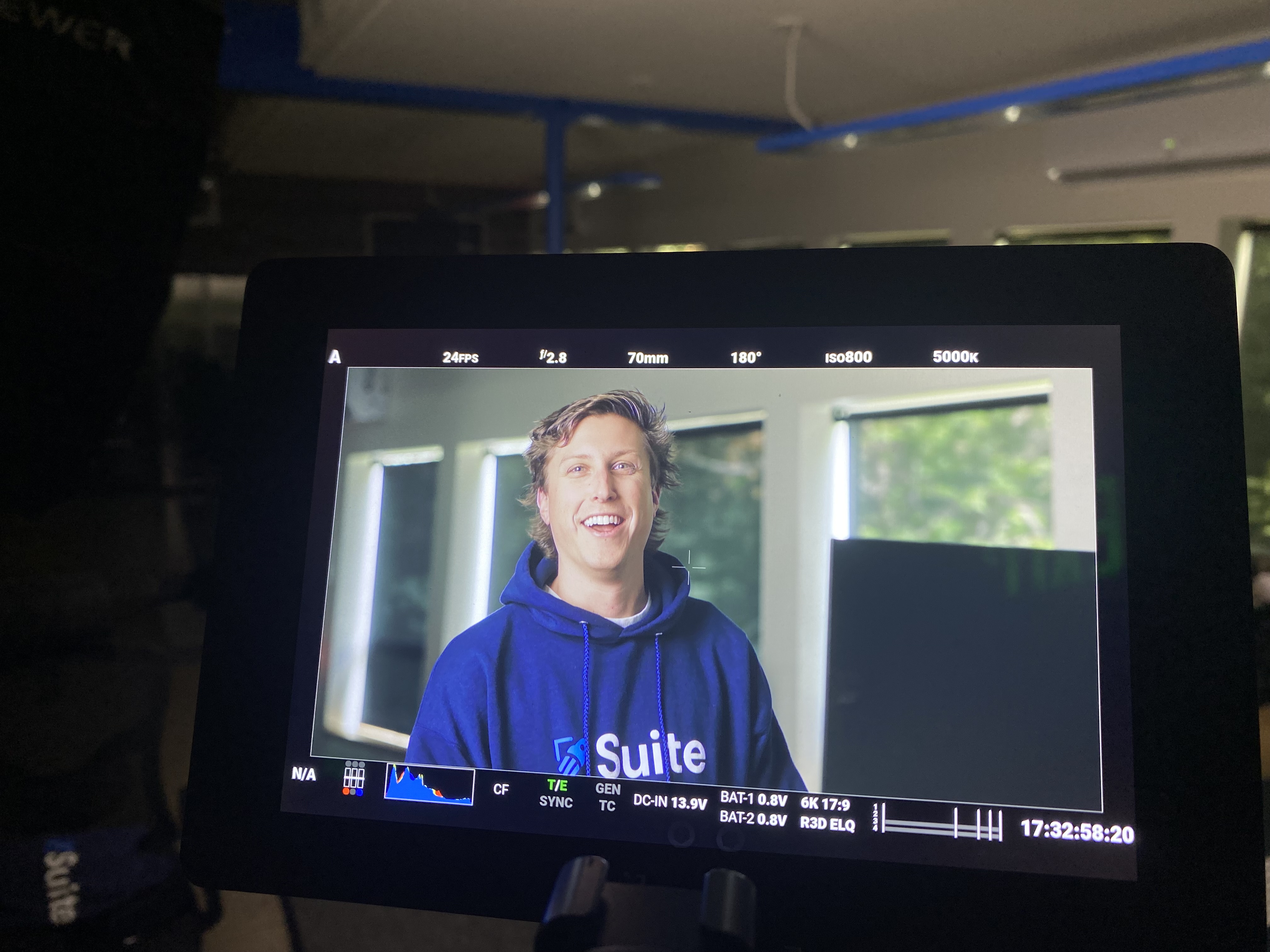
Samuel Taggart

8 Minutes

The final script is written in the Edit Bay.
When you’ve spent nearly three decades chopping & cutting video projects, you learn to see the most important pieces of the puzzle & make them shine. At least, that’s how Jason Sedmak, senior video editor at Postmodern in Denver, Colorado, puts it. He’s spent over 25 years making the most of his client’s captured content, from editing with Warren Miller Entertainment to composing advertisements for Burger King, and continues to tell a range of stories, from TV spots to documentaries and independent projects from his seat in the Edit Bay.
What’s funny about the role of video editor—and trying to celebrate it—is that it’s inherently designed to “disappear” into the background of the final cut; you’re not really supposed to notice the “editor’s touch,” unless it’s possibly being utilized as a tool for artful expression. So, when it comes to defining what makes an editor great, or attempting to figure out how an editor discovers their individual style, even tenured pros like Sedmak struggle to conjure an answer.
It emerges that the best video editors are omni-talented & remain incognito, whose style becomes synonymous with the project; who understand how to sift through hours of raw footage to find the right thread to pull; who can take the direction of others and realize it for efficient delivery; who examine the tools of the trade & learn their nuances to better enhance their ability to craft. The best video editors are in-tune with their inspiration & they're not shy to cut a scene from the timeline to help a story realize it’s potential. Becoming this kind of editor, though, takes time…
In this exclusive interview, we’re shining the spotlight on the Edit Bay—sorry, it’ll be bright in here for a moment, you can get back to editing soon—and sharing Sedmak’s insights on the craft. Take a closer read to better understand what it takes to become the best video editor you can be, why working collaboratively & staying open-minded is always best, and how you can learn to “fall in love” with every project that passes across your desk.

You're in the business of captivating audiences. What’s the importance of keeping up with tech & trends?
When I started video editing, we were still cutting film. There were computer editing systems, but Avid was basically brand new. The tools were pretty simplistic at first, and as non-linear technology evolved it became more computer intensive; that’s when systems started to branch off. Instead of buying a $200,000 Avid system, you could buy bits and pieces of hardware that you were now responsible for putting together. That’s how it is today—editors, like me, are forced to not only know how to do our craft, but know how to build, optimize, and maintain the tools & technology we need to complete the job. You have to be hyper-cognizant of the plugins, formats, deliverables...
Access to creative tools has also become more widespread.
It’s huge. Final Cut had a lot to do with it initially, but Adobe Premiere Pro has taken over. These tools make everything more accessible, but there are also a lot more people in the space. Whether its hobbyists, amateurs, or folks just cutting things for the web, or all the way up to the studios that work on the highest-end feature films and scripted television—there are so many more voices propelling different stories & coming up with new and improved ways to do things. The accessibility can make it more difficult to delineate yourself amongst everyone, though.
Could you explain the role of a video editor & how it fits into the scheme of a production?.
Whether in the highest or lowest-end markets, the video editor is the primary driver of any project once it's been captured. My role is to champion the project from the moment I touch it until it's done. Typically, that means acting as a producer, finding music or stock footage, even writing sometimes. Every stage of acquiring the content—organizing it, deciding which tool(s) you want to use to cut it, getting the script through editorial stages—all those things happen first; then the editor becomes the spearhead. My role has always been “helming” the process, the procedure, the finishing of it; you're responsible to see it all the way through. You're the glue, the thread that holds it together.
Damn! I’ll have to start paying more attention to the editing awards at the Oscars…
The editor is also often doing more than just cutting footage—sometimes you won’t get scripts, you just get hours and hours of footage, and it's up to you to go through it and craft the story. Other times, you’ll be given a script & it's up to you to make that work cohesively. In my mind, the editor is… okay, this may sound biased… the number one role in a production, outside of, perhaps, a producer. They’re the one who takes a project to its delivery.

What drew you into video editing initially?
I'm a technological person. I like to see things with a big-picture mindset, not necessarily a granular one. What really drew me to editing—it still gives me chills to this day—is that moment when you combine all the media & your great concept, pace it out in editing, and witness the thing actually come to life. Sometimes you get full-blown chills; other times, you’ll just make new discoveries that you hadn't thought about when you were conceptualizing the project. You have to incorporate so many disciplines to be a great editor: You have to have a sense of music, a sense of timing, pace, math, you gotta geek out on all those things, so you can bring them together in the edit.
How do you strike that balance of being a technical and a creative editor?
There are editors that are anti-tech; they don’t want to be trifled with technical hassles. Because computers are such a core element of the craft, though, you gotta know your tools—it just gives you more options.
How often do you rework something completely and have an “aha” moment?
That's constant. But it depends on the project: If you're given a script that a production company or a writer has labored over, you have to focus on that to deliver the best representation of the initial intention. It’s your job to explore all the possibilities, so that you might end up with something unexpected. You have to be open to throwing out the things that you love. It happens all the time; if it's not, you're not opening yourself up to being better.

What's a dream scenario for a video editor when you take on a project?
The best way to do things is the “traditional” filmmaking method involving a team of talented writers, cinematographers, and everyone coming together to conceptualize and plot out a project. Then everyone executes, so there's limited unknowns & variables heading into post. In that scenario, it’s your job to use the prompt and execute on it as well as possible—to bring it to life & make it work. Having the time, working with people that are driven with a creative dream, but also open to playing with the idea, those are dream scenarios.
But editing is still a collaborative effort…
Everyone probably agrees, editors are just the trolls that live in a dark room and they're not very good with people. [Laughs] There's some truth to that: To be an editor, you have to be judgmental, cynical, and you have to be able to look at something and be able to tear it apart. But that doesn't mean that you can't also thrive in a collaborative environment. That's super, super important… two heads are always better than one.
Now, what’s a nightmare scenario for someone in your seat?
Working on massive projects with no time, no form—when it's all on your shoulders & it's your responsibility from beginning to end. In those moments, you're left feeling like you might have done the very best you could—but it's often not as fulfilling when there isn't a team behind it.

How do you get ready to step into the edit bay & stay focused once you’re flowing?
First and foremost, I have to feel like I’ve mastered the tools—they cannot get in the way of my creative flow. Second, there has to be organization; in order to wrap your mind around a new project, as an editor, you have to compartmentalize. Lastly, it’s always been about falling in love, to some degree, with the material. If it doesn't resonate with, you're probably not opening your heart to what you've been given, and then nothing will stand out. You have to find something [within the project] that resonates, so you can start crafting; without that inspiration, it's hard to do any of it justice. You have to be willing to see the shine, to let yourself be swept away by whatever it is you're doing. That's how I find the focus—once I feel myself being swept away, it just snowballs into the stride.

How do you define your style as a video editor?
Style can be how you execute, but it also can be the result of your execution; those two things can delineate you as a creative person in the field. As far as developing & showing your style, the goal of the editor should be to strive to have any style, to have any capability of executing style. As you learn to let your creative juices flow, who you are—whoever you are—also helps define the personal style that emerges. Creative inspiration comes from some “other” space, and a good artist can be a vessel to that… whatever you want to call it, higher power, higher flow of creativity from the Universe. It's your job as an artist or technician to be that conduit to take inspiration from anywhere.
For a video editor, style could be how you execute the idea?
Certainly. There’s “divinity in simplicity,” for sure. Most tenured editors or filmmakers would say when executing something like a character arc, the simpler it is, the better. But you're also in this weird dichotomy because, if the goal of an editor is “not to notice the editor,” then how do you get noticed as an editor?! [Laughs] Your style needs to be whatever contributes the most to the project you're working on—that's your style.
What are your thoughts on the next generation of tech & collaboration?
As I see it, platforms like Suite’s cloud storage help open doors to a bigger global collective. It’s not just you with a drive hooked up to your machine anymore; everyone’s in it together & there’s new technology connecting us. These days, our employees need to be local, remote, & hybrid, all at the same time. Companies can gain a lot by pooling their talent and clients globally. It's beneficial as creatives to make it work—it makes the possibilities seem infinite.












